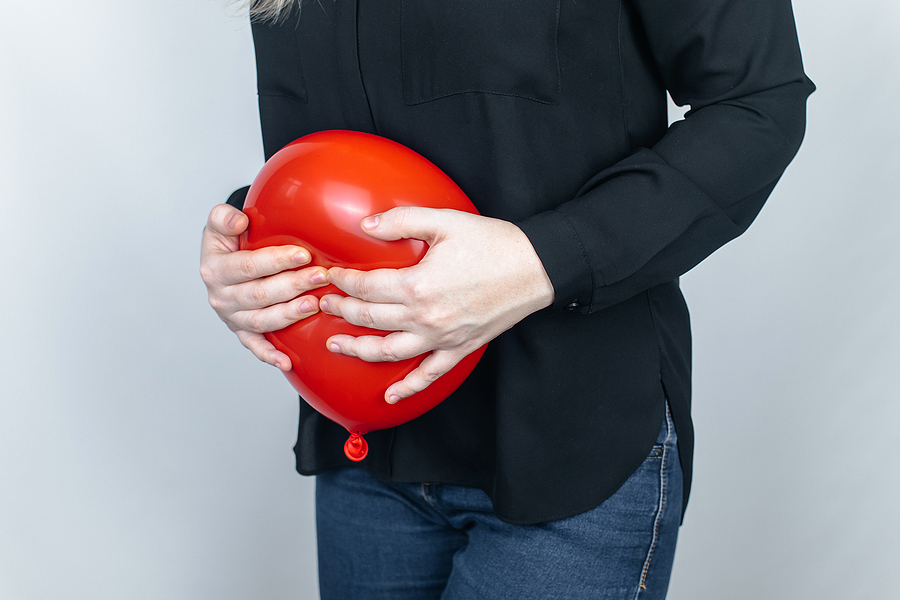Medical Care , Gastroenterology
Abdominal Gas, Bloating and Your Diet
Gutcare Digestive Liver Endoscopy Associates.

Bloating is one of the most familiar complaints presented to a gastroenterologist. Other symptoms associated with this are passing flatulence and change in stool consistency.
Food is an essential factor contributing to these symptoms. Patients commonly cite food to be the trigger of their bloatedness. Studies show that diets containing high amounts of indigestible and poorly absorbed short-chain carbohydrates can cause abdominal symptoms. They are collectively labelled as FODMAPs, an acronym of “fermentable oligo-, di- and mono-saccharides and polyols”. Since FODMAPs are poorly absorbed, they are readily fermented by bacteria once reaching the large bowel. This contributes to the production of gases.
FODMAPs are naturally found in a wide range of foods. The common culprits are garlic and onion, which are primary high FODMAP sources. They are commonly used in our daily food preparation. Other examples of food, which are high in FODMAPs, are bread, pasta (wheat-based products), cauliflower, cabbage, mushroom (vegetables), apple, mango, watermelon (fruits) and milk, ice cream (dairy products). A search for ‘FODMAP’ on the internet will help you understand more about the different types of food and their FODMAP contents.
All of us love good food. Our cuisines are diverse and have a blending of different ingredients, spices and herbs. Condiments are also commonly used, accompanying most dishes. High FODMAP ingredients make up a considerable proportion of these. While they are compelled to eat and give oodles of pleasure to you, your bowels may not necessarily agree.
Avoiding foods that are high in FODMAPs and replacing them with foods low in FODMAPs can alleviate the bloating and other abdominal symptoms. It is helpful also to avoid sauces and heavily flavoured, rich and spicy foods.
As you may know now, it is pretty challenging to avoid FODMAPs altogether as they are present in a broad range of foods. The good news is that you may get away with it if you only consume just a little. FODMAP tolerances vary between individuals. Some can tolerate FODMAPs more than others.
On the same note, some patients may experience abdominal discomfort only after consuming a specific type of food, such as ‘gluten’, and wonder if they have an allergy to it. Food allergy is not shared and only presents in 1 to 2 percent of the adult population. Most adverse food reactions in adults are due to food intolerance which can be up to 20 percent. So, you are more likely to have food intolerance if you develop abdominal symptoms after consuming a particular food.
One way of identifying the type of food intolerance is by keeping a food diary to keep track of your food intake. Another more objective method is performing a hydrogen breath test to check for lactose intolerance (dairy product) and fructose intolerance (certain fruits and fruit-based sweetener, which is used in a variety of soft drinks and snacks). They are non-invasive, outpatient tests that involve collecting your breath over a period of time and examining the rise of the exhaled hydrogen. In this way, you can objectively know your food intolerance and specifically target to avoid it.
Article provided by Dr Loh Poh Yen, Senior Consultant Gastroenterologist.
Gutcare Digestive Liver Endoscopy Associates Singapore.
Related Articles
Medical Care
5 strategies to cope with cancer by CanHOPE
Parkway Cancer Centre’s non-for-profit cancer counselling and support service shares its suggestions for cancer patients
Read moreMedical Care
A new approach against severe asthma
A novel treatment for severe asthma is improving patients’ quality of life by significantly reducing asthma attacks
Read moreMedical Care
Stomach (Gastric) Cancer “The way to a man’s heart is through his stomach”
In most societies, culturally, food is regarded as an important aspect of social interaction in the form of entertainment, the gift of sharing and even for some it’s a comfort tool. What we eat is what we are.
Read moreLatest Articles
Medical Care
Clinical Exercise Physiologist (CEP): The Emerging of Exercise is Medicine
How Exercising can be a Medicine
Read moreMedical Care
Reversing type 2 Diabetes: Embracing Hope and Determination
Experience the remarkable journey of Ash and his grandfather Atok as they conquer type 2 diabetes through unconventional methods, showcasing the power of love and determination over adversity.
Read moreMedical Care
Bladder Cancer: What You Need to Know
Empower yourself with our comprehensive guide to bladder cancer. Explore symptoms, diagnosis, treatments, and supportive resources to safeguard your health.
Read more